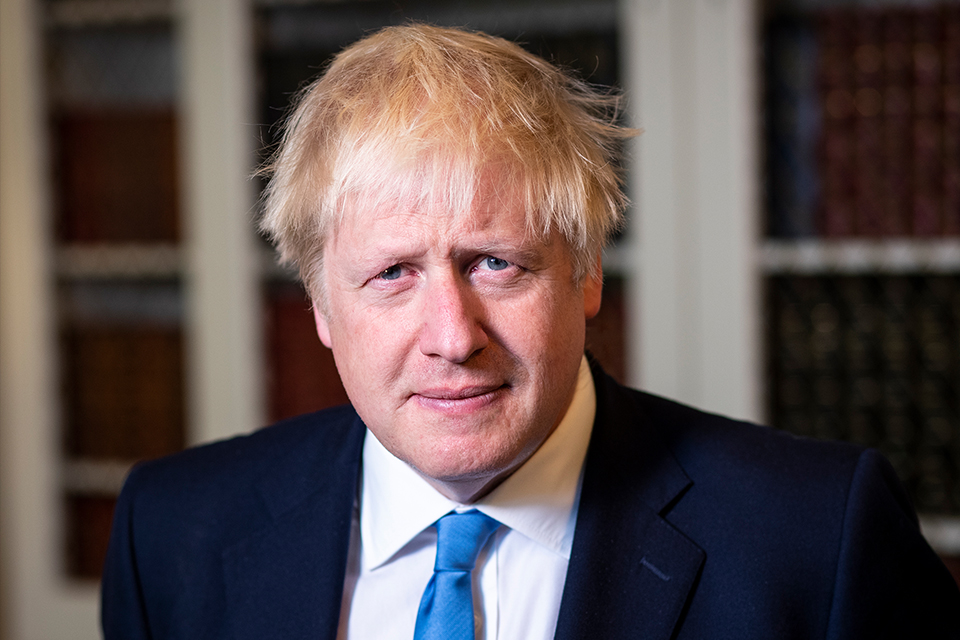Prime Minister's statement on coronavirus (COVID-19): 30 December 2020
Prime Minister Boris Johnson gave a statement at the coronavirus press conference.

Prime Minister’s statement on coronavirus (COVID-19): 30 December 2020
Today I want to begin with the good news: the approval of the Oxford/AstraZeneca vaccine which is a fantastic achievement for British science
And which will allow us to vaccinate more people, and also vaccinate them more quickly.
And there is one important development that’s helping us to accelerate our vaccination programme across the whole of the UK:
We’ve had new advice from the Joint Committee on Vaccination and Immunisation
that the first dose can protect people against the worst effects of this virus
because the benefits kick in after two or three weeks.
And so from now on we will give a first dose to as many vulnerable people as possible,
with the second dose to follow twelve weeks later.
And what that means is we can vaccinate and protect many more people in the coming weeks.
I know everyone watching this will want to know when you can get your vaccine
and all I want to say is we are working as hard and as fast as we can to get the supplies to you, and as soon as we have the supplies we will be getting them into people’s arms
To summarise where we are
We have to face the fact we’ve got two big things happening at once in our fight against Covid -
One is working for us; and one working against us.
On the plus side we have two valid vaccines and we are racing, as I say, to get them out.
On the downside, there is a new strain of the virus which is spreading much faster and surging across the country.
And we have seen a 40 per cent increase in cases in England in the last week alone,
almost 15 per cent more patients in hospital – more than at the peak of the first wave.
And yesterday sadly we recorded almost a thousand deaths across the UK, for the first time since April.
So at this critical moment with the prospect of freedom within reach
We’ve got to redouble our efforts to contain the virus.
That’s why the Health Secretary has announced that more areas of England will be moving into Tier 4 from tomorrow
And as I say again, no-one regrets these measures more bitterly than I do.
But we must take firm action now
and that’s why we have to think very hard about schools.
Because today of course it remains the case that keeping children in education is a national priority
it remains the case that schools are safe.
But we must face the reality that the sheer pace of the spread of this new variant
requires us now to take even tougher action in some areas and that does affect schools
Let me set out for you what this means.
In most of England, primary schools will still reassemble next week, as planned for the new term.
But, in the areas we have just published today on gov.uk,
I am afraid the start of the new term will be delayed until at least January 18,
when the latest data on those infection rates will be reviewed.
That is because the rate of transmission in these areas is so high,
and there’s just such pressure on the local NHS,
that extra action is required to control the spread of the virus.
The children of key workers, or those who are considered to be vulnerable, will still go back to primary schools from next week – wherever they live in England.
They are not affected by today’s announcement.
In secondary schools, all vulnerable children and the children of critical workers will go back next week across England, as originally planned.
But we will ask exam year pupils in secondary schools to learn remotely during the first week of term
and return to the classroom from 11 January.
The remaining secondary school pupils, i.e. non exam groups will go back a week later, that is from 18 January – but I want to stress that depending on the spread of the disease it may be necessary to take further action in their cases as well, in as I say the worst affected areas.
To minimise disruption in schools and to fight the disease we are massively expanding our testing operation
ensuring that every secondary school pupil is tested as they return, and regularly thereafter.
Again I want to thank the teachers, pupils and parents who have worked so hard to keep schools safe and keep them open.
We are also asking universities to reduce the number of students who return to campus in January, prioritising medical courses and others requiring face to face teaching.
And in all cases, students should be offered two rapid tests when they return.
All of these measures are in the end designed to save lives and to protect the NHS.
And for that very reason,
I must ask you to follow the rules where you live tomorrow night
and see in the New Year safely at home.
That means not meeting up with friends or family indoors, unless they are in the same household or support bubble,
and avoiding large gatherings of any kind.
We are still in the tunnel of this pandemic
the light however is not merely visible:
thanks to an extraordinary feat of British engineering if you like
the tunnel has been shortened
and we are moving faster through it, and that gives me great confidence about the future in the Spring
So for now let’s double our efforts, let’s follow the rules,
protect our NHS
and together make 2021 the year we leave this tunnel behind us.